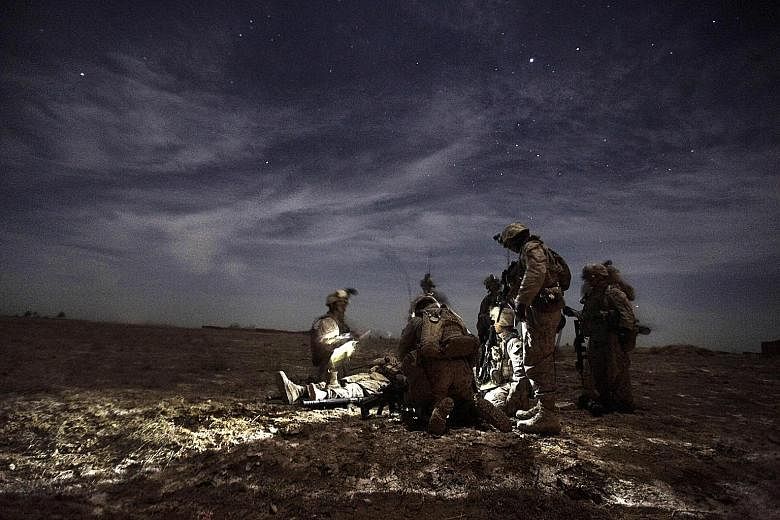The story
After nearly 20 years of conflict, President Joe Biden announced the pullout of American forces from Afghanistan, declaring that it was "time to end the United States' longest war" as US objectives in the country had become "increasingly unclear" as time went by.
He set May 1 as the deadline for some 2,500 US troops to leave, with the complete withdrawal by Sept 11 - 20 years after the 9/11 Al-Qaeda attacks on US soil which triggered the war in Afghanistan.
Following the announcement, the North Atlantic Treaty Organisation (Nato) said it would also begin to withdraw about 7,000 troops from May with a total withdrawal to be completed within a few months.
Why it matters
Mr Biden has had enough after two decades of war that has led to more than 2,400 Americans killed and over 20,000 service personnel wounded. He is refusing to risk more taxpayer funds and American lives on a conflict 12,000km away.
"We cannot continue the cycle of extending or expanding our military presence in Afghanistan hoping to create the ideal conditions for our withdrawal, expecting a different result," he said on Wednesday.
Mr Biden also said the US has fulfilled its mission in killing Al-Qaeda leader Osama bin Laden, who was killed by US special forces in Pakistan on May 2, 2011.
Bloomberg reported that Mr Biden's move will free up the military's attention as well as some money - the Pentagon spent almost US$40 billion (S$53 billion) in fiscal 2020 on Afghanistan operations - to focus on countering the growing threat from China's military.
The Biden administration noted that over the years the threats to the US have evolved, from terrorists in Afghanistan to those in Syria and Somalia, from the Middle East to China and from real-world battlefields to online hacking.
US officials also hope the impending withdrawal - four months later than a deadline agreed with the Taleban last year - will nudge the Afghan government headed by President Ashraf Ghani to agree to a peace deal with the insurgents.
What's next
The US has assured the government in Kabul it will remain committed to Afghanistan, saying Washington would "intensify" its diplomacy to do everything it can to advance efforts to secure a peace agreement and a power-sharing interim government between the Kabul government and the Taleban.
The prospect however looks bleak as the Taleban has declared it will not be part of any peace talks until all US and Nato forces leave.
Concern is growing that the withdrawal of US and Nato troops could precipitate the collapse of the fragile Afghan government, start a civil war with the Taleban, or worse, provide space for Al-Qaeda and the Islamic State in Iraq and Syria (ISIS) to rebuild their territory and attack other targets.
If that were to happen, regional stability and security would be at risk, not to mention millions of Afghan refugees crossing over to neighbouring countries.
A Taleban return in Kabul - either through civil war or a power-sharing deal with the current government - may erase the gains achieved by women and girls in education, women's rights and other areas in the last two decades. The Taleban has never renounced its goal of Islamist rule.


